
Originally published in The Clarinet 51/3 (June 2024).
Copies of The Clarinet are available for ICA members.
Audio Reviews:
June 2024
RECORDINGS
Mosaicos. Trío Musicalis: Eduardo Raimundo, clarinet, bass clarinet; Mario Pérez, violin; Francisco Escoda, piano. H. Parra: Chiffres et constellations amoureux d’une femme (d’après la XXe constellation de Joan Miró); J. Torres: Fulgor; J.L. Greco: Big Fun; R. Paús: El Huésped Cuántico; J.M. Sánchez-Verdú: Lus negra II (De máquina oscura). IBS Classical, IBS62023. Total Time: 63:06.
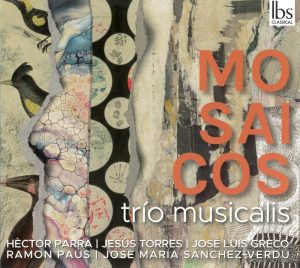 Trío Musicalis presents an eclectic collection of newer works for clarinet/bass clarinet, violin, and piano in their new album Mosaicos. Established in 2008, the trio has commissioned and premiered nearly 30 works by Spanish composers. In this album, clarinetist Eduardo Raimundo of the Spanish National Orchestra and the Katrina Gurska Conservatory, violinist Mario Pérez, and pianist Francisco Escoda present five superb performances of these works that were composed for the ensemble. The musicians are sensitive collaborators, and they play with polished virtuosity. The disc is accompanied by notes with an English translation that is a bit clumsy at times. Nevertheless, the notes share interesting information and showcase illustrations created for each piece by Ion Fernández de las Heras.
Trío Musicalis presents an eclectic collection of newer works for clarinet/bass clarinet, violin, and piano in their new album Mosaicos. Established in 2008, the trio has commissioned and premiered nearly 30 works by Spanish composers. In this album, clarinetist Eduardo Raimundo of the Spanish National Orchestra and the Katrina Gurska Conservatory, violinist Mario Pérez, and pianist Francisco Escoda present five superb performances of these works that were composed for the ensemble. The musicians are sensitive collaborators, and they play with polished virtuosity. The disc is accompanied by notes with an English translation that is a bit clumsy at times. Nevertheless, the notes share interesting information and showcase illustrations created for each piece by Ion Fernández de las Heras.
Hèctor Parra’s Chiffres et constellations amoureux d’une femme (d’après la XXe constellation de Joan Miró) (Amorous Figures and Constellations of a Woman) opens the album. The work was written in 2020 and is part of a compositional project about Joan Miró’s paintings. Parra invokes unexpected sounds and timbres including assorted extended techniques. The trio plays with commitment through astounding technical demands with seeming ease and natural flow. The soundscape is unique and, at times, otherworldly. The impressive violin and bass clarinet cadenzas are noteworthy as Raimundo and Pérez brilliantly navigate the technical challenges.
Jesús Torres’s Fulgor (Brilliance) was written in 2017 to celebrate the tenth anniversary of Trío Musicalis. It was influenced by José Ángel Valente’s book El fulgor and is a highlight of the album with its striking introduction and flowing melodies. Listeners will appreciate the consistency of style, articulation quality, and the flexibility of the performers as they assume ever-changing roles within the ensemble. Unique timbral effects abound including interesting melodic doubling as well as quarter tones and multiphonics on the clarinet.
José Luis Greco’s memorable Big Fun opens with a catchy ostinato in the piano that is layered with lines in the bass clarinet and violin. Greco explores a variety of moods and styles and sound effects, from upbeat and bright to lyrical and heartfelt. The trio masterfully juxtaposes these contrasts and creates lovely dialogue between the voices. The impressive legato that the trio achieves between wide intervals is worth special mention. According to the notes, Big Fun served as a precursor to Greco’s concerto for bass clarinet and orchestra that was also commissioned by Raimundo.
Ramon Paús’s El Huésped Cuántico (The Quantum Guest) is well-written and maximizes varied colors and ensemble combinations. The duos between bass clarinet and violin are striking, as are the rapid articulated passages and the bird-like calls in the middle Andante section. Paús’s lyrical writing allows Raimundo’s beautiful tone and control on bass clarinet to shine. Like Greco, Paús also wrote a bass clarinet concerto for Raimundo that was premiered in 2018.
José María Sánchez-Verdú’s Luz negra II (De máquina oscura) [Black Light II (Of a Dark Machine)] concludes the album. The work is dedicated to the poet Francisco Deco and Trío Musicalis. According to the notes, it is part of a series of compositions about black light from different perspectives. It is quite a contrast from the album’s other works in terms of sonic vocabulary. The textures are sparse, with a variety of unique timbral and percussive effects.
It is certainly a pleasure to hear such compelling performances of works written for this ensemble. Trío Musicalis has expertly showcased the diversity and originality of contemporary works for clarinet, violin, and piano by Spanish composers.
– Justin Stanley
All Your Diamond Tears: Recent Clarinet Works by Marc Satterwhite. Matthew Nelson, clarinet; Jayne Drummond, oboe; Douglas Jurs, piano; Lee Livengood, bass clarinet. M. Satterwhite: Two for Chihuly for BÌ-flatclarinet and bass clarinet; When I Go for solo clarinet; Five Strong Winds, for B-flat clarinet and piano; For Dallas, for solo B-flat or A clarinet; A Murmuration of Starlings, for oboe and BÌ clarinet. Centaur Records, CRC 4042. Total Time: 69:11.
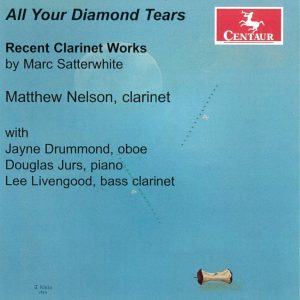
Two for Chihuly for B-flat clarinet and bass clarinet serves up amorphous lines that interweave and connect in fantastic synchronicity while showcasing the best parts of clarinet and bass clarinet tones—flexibility and color. For Matthew Nelson and Lee Livengood, intonation is a subset of color because it is so reliable that the first thing you notice is blend instead of frequency as both instruments trade long tones and grow roots to build out of each other’s sounds. The unison rhythm section adds color and verve, especially in the tremolo section of the piece. The stratosphere of the piece and the expertise of the players conjures an image of a room without a ceiling, open to the sky. The oneness of spirit achieved by Nelson and Livengood blossoms into full funk in “Blue Neon Tumbleweed” while still exploiting the extremes of register and agility of both instruments.
When I Go is a virtuosic explosion of notes and feelings aptly executed by Nelson in a solo piece that serves up perpetuum mobile across all registers with virtually no strain. The contrast is striking between the first movement and “Sigh, Mournful Sister, Whisper and Turn” where the half step and Baroque doctrine of affects blend with seamless trills. “All Your Diamond Tears Will Rise Up and Adorn the Sky Beside Me When I Go” etches out a careful melody adorned by constant movement, call and response. “Raise My Yearning Voice at Midnight” features Nelson’s fullness of tone and presence while “I Will Strike Fell Like Lightning When I Go” refuses to be contained.
Five Strong Winds, for B-flat clarinet and piano starts with aggressive chords in the piano during “Xlokk” before showing a softer, lyrical side; each emotional affect, manic though it might seem, is mirrored perfectly in the clarinet with sensitivity and contrast. The calm tranquility of “Mbatis” shines in the colors of the piano as played by Douglas Jurs and “Siffanto” shimmers with intensity after the unsettling calm of “Mbatis” and the coldness of “Xlokk.” “Wabun” is expansive and thrilling and “Chinook” is confrontational and aggressive. Nelson navigates these moods and the technique involved with great flexibility and sensitivity.
For Dallas for solo B-flat or A clarinet shows colors and control in every register with a strong sense of pacing and drama while maintaining a warm, fluid sound that shape shifts its way through the emotions it presents.
A Murmuration of Starlings for oboe and BÌ clarinet features a mind-blowing sound blend between Nelson and oboist Jayne Drummond with rhythmic unisons, trills, coloration, and emotional intent. There is true artistry in this collaboration. Marc Satterwhite allows his avian inspiration to thrive in the active lines, vibrant articulations, and character, and it makes for a startling and inspirational performance. Matthew Nelson’s collaboration with Marc Satterwhite defies gravity in its technical demands and connection to the material, and he is fully supported by the artistry of Lee Livengood, Douglas Jurs, and Jayne Drummond.
– Andrea Vos-Rochefort
Recompensa. Variego3: Jorge Variego, clarinets; Jack Roben, electric guitar; Rob Linton, double bass. J. Variego: Tango Blues; And the Trees; Recompensa; Susurro de Paris; Tema de Manuel; Reencuentro; Malambo; What is Home. Centaur Records, CRC 4074. Total Time: 44:33.
 This album features the jazz trio Variego3 performing works written exclusively by clarinetist Jorge Variego. Variego was born in Rosario, Argentina. He is a former Fulbright Scholar and is currently on the music theory/composition faculty at the University of Tennessee–Knoxville, and the Sewannee Music Festival. Guitarist Jack Roben is based in Oakland, California, and previously served as lecturer of jazz guitar at the University of Tennessee–Knoxville. Double bassist Rob Linton is adjunct professor of music at the University of North Carolina–Charlotte, and performs professionally in Knoxville.
This album features the jazz trio Variego3 performing works written exclusively by clarinetist Jorge Variego. Variego was born in Rosario, Argentina. He is a former Fulbright Scholar and is currently on the music theory/composition faculty at the University of Tennessee–Knoxville, and the Sewannee Music Festival. Guitarist Jack Roben is based in Oakland, California, and previously served as lecturer of jazz guitar at the University of Tennessee–Knoxville. Double bassist Rob Linton is adjunct professor of music at the University of North Carolina–Charlotte, and performs professionally in Knoxville.
The first track on the disc, Tango Blues, is a pleasant, tuneful work featuring Variego primarily as soloist on BÌ clarinet. This piece seems to be an homage to Gershwin, particularly It Ain’t Necessarily So. The writing includes quite a bit of unison playing in the ensemble, exemplifying their excellent intonation and rhythmic precision. Here, clarinetist Variego aptly demonstrates his ability with multiphonics and jazz-riff playing.
The next work, And the Trees, is a mournful soliloquy performed beautifully on bass clarinet by Variego. He incorporates a “smokiness” to his sound, giving this piece a very seductive and mysterious quality. The color of this instrument combination is especially alluring and effective.
Recompensa, the album’s namesake, again features Variego playing bass clarinet. While the intonation and improvisation expertise exhibited in this performance are notable, the tessitura in which the bass clarinet frequently plays leaves the listener wishing it was written in a lower octave. The accompanying instrument writing, however, is brilliant and expertly played.
Susurro de Paris brings us to a smoky Parisian café with Variego’s smooth, melodic stylings on bass clarinet. Linton also provides a lyrical double bass solo and Roben adds elegant glissando-type gestures to this curious but delightful work which is a play on parallel tritones.
Tema de Manuel is a habanera of sorts with its characteristic bass line. Here, on clarinet, Variego demonstrates again his exquisite intonation and a natural, understated flair for improvisation. Also notable in this work is Variego’s seamlessly legato glissando work.
Reencuentro opens with a very soulful and colorful electric guitar solo by Roben which segues into a dialogue with Variego on bass clarinet. Again, unison accuracy of intonation is on full display in this performance. From an audio recording standpoint, perhaps more could have been done to clarify the texture within the ensemble. The guitar effects at certain moments are effective but a bit too prominent in the sound mix.
In Malambo, we truly hear Variego’s wailing jazz style and his prowess with improvisation. His growls on bass clarinet, used sparingly on this disc, were completely effective when employed. Here, also, Roben lets loose a bit with a very dynamic and expressive improvised solo. This work is the highlight of the disc.
What is Home, the final work on this disc, is a somewhat melancholic statement that may be a longing for one’s past. There’s an earthiness to this music with its minimalist elements and lack of exuberance compared to works that precede it.
The timing of this disc is 44 minutes, a bit shorter than standard album length. Nonetheless, Recompensa is a refreshing contribution to the clarinet recording canon with its uniqueness of genre and composer/performer conception.
– Kenneth Long
Music for Solo Clarinet: Works by Cypriot Composers. George Georgiou, clarinet. C. Athinodorou: Nocturne; E. Sammoutis: To Tertin tis Kartoulas Mou; A. Aifotiti: Athmospheres IV; G. Papageorgiou: Andromeda; R. Hovhanessyan: Meditation; S. Michailides: Avlos II; M. Andronikou: Ragtime; A. Kalogirou: Reflective Cycles; P. Charalambous: Into the Light. Independent Release. Total Time: 55:00.
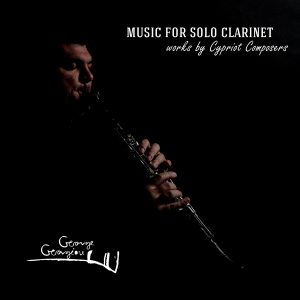
George Georgiou’s new album Music for Solo Clarinet: Works by Cypriot Composers brings together nine new compositions in an eclectic compendium. The album has 11 tracks featuring composers Christina Athinodorou, Evis Sammoutis, Artemis Aifotiti, Giorgos Papageorgiou, Robert Hovhanessyan, Solon Michailides, Michalis Andronikou, Anna Kalogirou, and Polyvios Charalambous, all performed by Georgiou and recorded at Hook Recording Art Studio in Nicosia, Cyprus and released in October 2023. George Georgiou has performed across Europe, the Middle East, and the United States, holds the clarinet professor position at University of Nicosia, and serves as the Cyprus country chair for the International Clarinet Association.
Georgiou’s album threads the medium of solo clarinet in its bare and revealing possibilities. His solid tone and control are featured prominently as you would expect from a solo album. Christina Athinodorou’s Nocturne features wide expanses of melodic, pure tone that becomes fragmented with multiphonics and pointillistic articulated passages. Evis Sammoutis’s To Tertin Tis Kartoulas Mou features extemporizations on a folk melody dotted by flutter tongues, twists and turns, and leaps that grab your attention.
Athmospheres IV by Artemis Aifotiti returns to a slower, pensive realm, dotted with flourishes similar to the opening sections of Berio’s Sequenza IXa. Giorgos Papageorgiou’s Andromeda slowly unfolds over six minutes, with slow, languid melodies picking up steam later on in the work. In this track, you can hear the closeness of the breath sounds and raspy articulation towards the end of the track that add to the atmosphere and might have been lost with different microphone placement. Meditation by Robert Hovhanessyan shows off Georgiou’s tone in melodic passages again with great sound and shaping. This composition does not use extended techniques and might be an approachable, well-written piece for clarinetists diving into their first contemporary works.
Reflective Cycles by Anna Kalogirou is the second-longest work featured with three movements each spanning three minutes, from the bisbigliando passages of movement one to the multiphonic shaping and contrasting leaps of the third movement. Polyvios Charalambous’s Into the Light has the longest runtime at 11 ½ minutes. Like many of the other works featured, Charalambous is economical in space, pacing, and transitions between sound worlds.
Overall, this album brings together many great works that would each on their own be valuable additions to the repertoire. While you could consume the album in one sitting, I would suggest breaking it up into bite-sized morsels. I listened continuously and found myself getting a little lost in the wide expanses and singular instrumentation. By breaking each track up on second listen, I got to know the pieces much better and found that it brought out each composition’s distinct character. The album will definitely make you want to learn more about and program some of these works in the near future.
– Ford Fourqurean
Promenade. Ben Redwine, clarinet; Francesca Hurst, piano; Sunrise String Quartet; Studio Orchestra, Charlie Barnett, conductor. C. Barnett: Fireman’s Carnival; J. Stephens: Quintet for Clarinet and Strings; W.A. Mozart: Clarinet Quintet, K. 581; G. Gershwin: Promenade (Walking the Dog). Digital Release. Total Time: 63:00.

This album shows the incredible versatility and depth of musicianship that clarinetist Ben Redwine has at the ready. Fireman’s Carnival by composer Charlie Barnett comprises the first five tracks on this album. The work evokes the composer’s memories of a local carnival he attended as a child. The playing by the orchestra and Redwine alike is full of spirit and energy and captures the scenes of the carnival exceptionally well. In particular, “Ferris Wheel” showcases how Redwine is effortlessly able to bring the beautiful melodies from Barnett to life and soar over the textures created by the orchestra. This work is filled with beautiful moments for the entire orchestra and shows how well the clarinet can be utilized in music that is cinematic in style.
The quintet by John Stephens was commissioned by Redwine and it is unique because it uses E-flat, A, and B-flat clarinet. Soaring melodies, bright rhythms, and intimate moments create an expressive arc that Redwine’s expert playing illustrates with ease. His lively and colorful articulation brings a clarity that fits the piece perfectly. The next offering by Redwine is the timeless Quintet for clarinet and string quartet by Mozart. While this was recorded live, you’d never know it from the surety and polish Redwine demonstrates throughout. Redwine shines in the Larghetto movement where his playing is sensitive and refined and brings Mozart’s intentions to life while still having a dash of modern personality. In the final movement, Allegretto con variazioni, Redwine’s technical capabilities are on full display, with each note having direction and purpose. The final and title track, Promenade by Gershwin, shows Redwine in a jazz idiom—and he is flawless here. The freedom and tasteful vibrato in his playing makes this piece really sing.
This album as a whole is one that is certainly worthy of a listen by all clarinetists. It proves what many already knew; that Ben Redwine can play anything in any style on the clarinet.
– Spencer Prewitt
Starlighter. Kinan Azmeh, clarinet; Brooklyn Rider: Johnny Gandelsman, violin; Colin Jacobsen, violin; Nicholas Cords, viola; Michael Nicolas, cello; with Mathias Kunzli, percussion. K. Azmeh: In The Element; Dabke on Martense Street; C. Jacobsen: Starlighter; Ljova: Everywhere is Falling Everywhere. In a Circle Records, ICR026. Total Time: 58:56.
 Syrian clarinetist Kinan Azmeh, string quartet Brooklyn Rider, and multi-percussionist Mathias Kunzli have joined together in the album Starlighter released by In a Circle Records. This instrumentation, used by some of history’s greatest composers in some of the clarinet’s most renowned repertoire, is made fresh by the presence of Kunzli’s percussion, as well as the cultural pastiche that can be heard throughout the album.
Syrian clarinetist Kinan Azmeh, string quartet Brooklyn Rider, and multi-percussionist Mathias Kunzli have joined together in the album Starlighter released by In a Circle Records. This instrumentation, used by some of history’s greatest composers in some of the clarinet’s most renowned repertoire, is made fresh by the presence of Kunzli’s percussion, as well as the cultural pastiche that can be heard throughout the album.
The album begins with In The Element, which was composed by Azmeh. The first movement, “Run,” opens with a pensive clarinet solo that evokes the clarinetist’s Syrian roots before being joined by somber strings. Azmeh’s clear, warm tone and expert use of vibrato blend well with the strings, before things break into an upbeat groove reminiscent of the best minimalist works. Percussion elements give the movement a pop feel that one can’t help but dance to. Brooklyn Rider takes center stage in the atmospheric second movement, “Rain.” The strings and clarinet weave lyrical soloistic parts together in a way that exhibits the musicians’ understanding of one another and their clear emotional and musical ideas. In The Element closes with “Grounded,” in which the strings return to a minimalist pattern beneath a lovely clarinet solo. Azmeh’s beautiful chalumeau register and comfortable use of microtones bring to mind his heritage. As the movement builds into to a faster rock section, he demonstrates true mastery of the instrument as well as his unique ability to blend traditional and modern genres.
Next on the album is Starlighter, composed by Brooklyn Rider violinist Colin Jacobsen. The composer likens sonata form to the scientific process of photosynthesis, and this piece is, as he says, a “free fantasy” on those ideas. In the work Brooklyn Rider and Azmeh again showcase excellent communication and alignment with often complicated and repetitive lines weaving together seamlessly. Each instrument comes in and out of the texture with fluidity, and Azmeh displays a clear, sweet tone through all registers and beautifully conveys the changes in character during the musical photosynthesis that the piece depicts.
Dabke on Martense Street was composed by Azmeh for Brooklyn Rider. Throughout this work for string quartet Azmeh again seeks to blend his two homes, Syria and Brooklyn, by imagining a traditional Syrian dance on the street where he lives in America.
The final piece, Everywhere is Falling Everywhere by violist/composer Ljova, was originally written with flexible instrumentation for the Silkroad Ensemble. This arrangement for clarinet quintet and percussion was created by the composer for this album. The piece was inspired by a 13th-century poem and clearly evokes a story-teller’s sensibility, moving between characters and moods. For much of the piece the cellist is on a playful ostinato line while the other strings and clarinet play long, sensual melodies and a variety of percussion instruments add to the atmosphere. The piece builds to a faster section in which the clarinet and strings seem to trade solos like a jazz ensemble might. In this section Azmeh impresses, with an enviable demonstration of the flexibility of his tone, fluidity of his technique, and ability to change character and color. The piece closes with the entire ensemble driving to the end in a raucous flourish.
Overall, Starlighter is a fun and unique album to listen to. The blend of traditional classical and Syrian music, along with the clear influence of jazz and popular idioms, is both entertaining and eye-opening.
– Madelyn Moore
NEW RELEASES
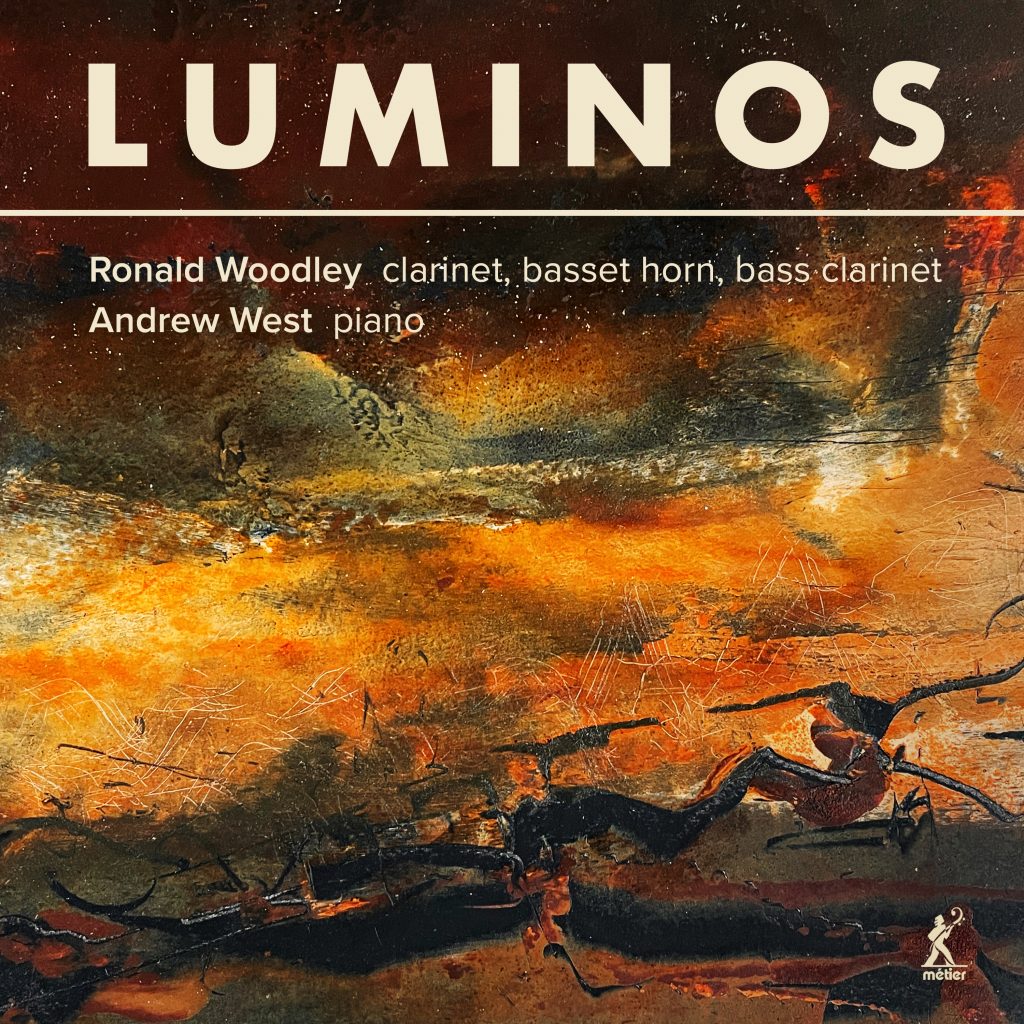
Luminos. Ronald Woodley, clarinet, basset horn, bass clarinet; Andrew West, piano. Métier, MEX77118.
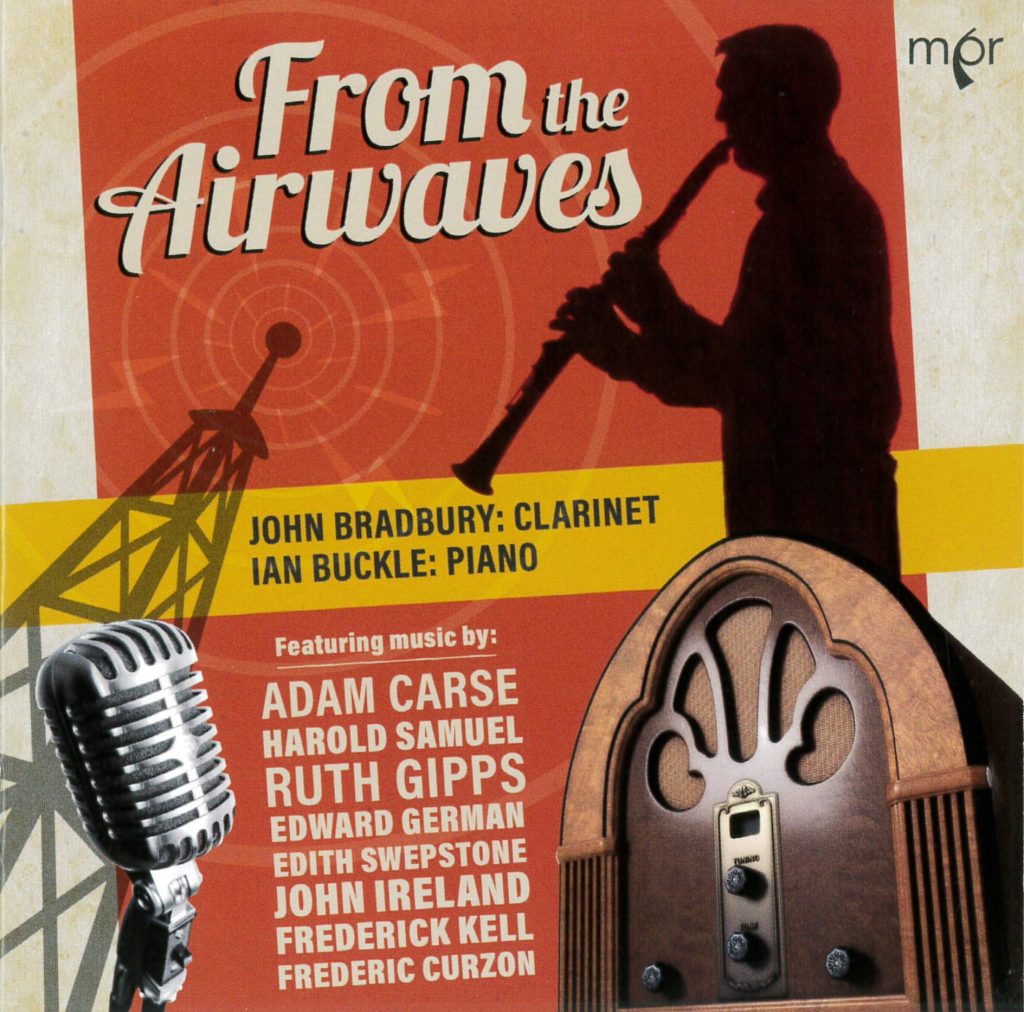
From the Airwaves. John Bradbury, clarinet; Ian Buckle, piano. MPR, MPR117.
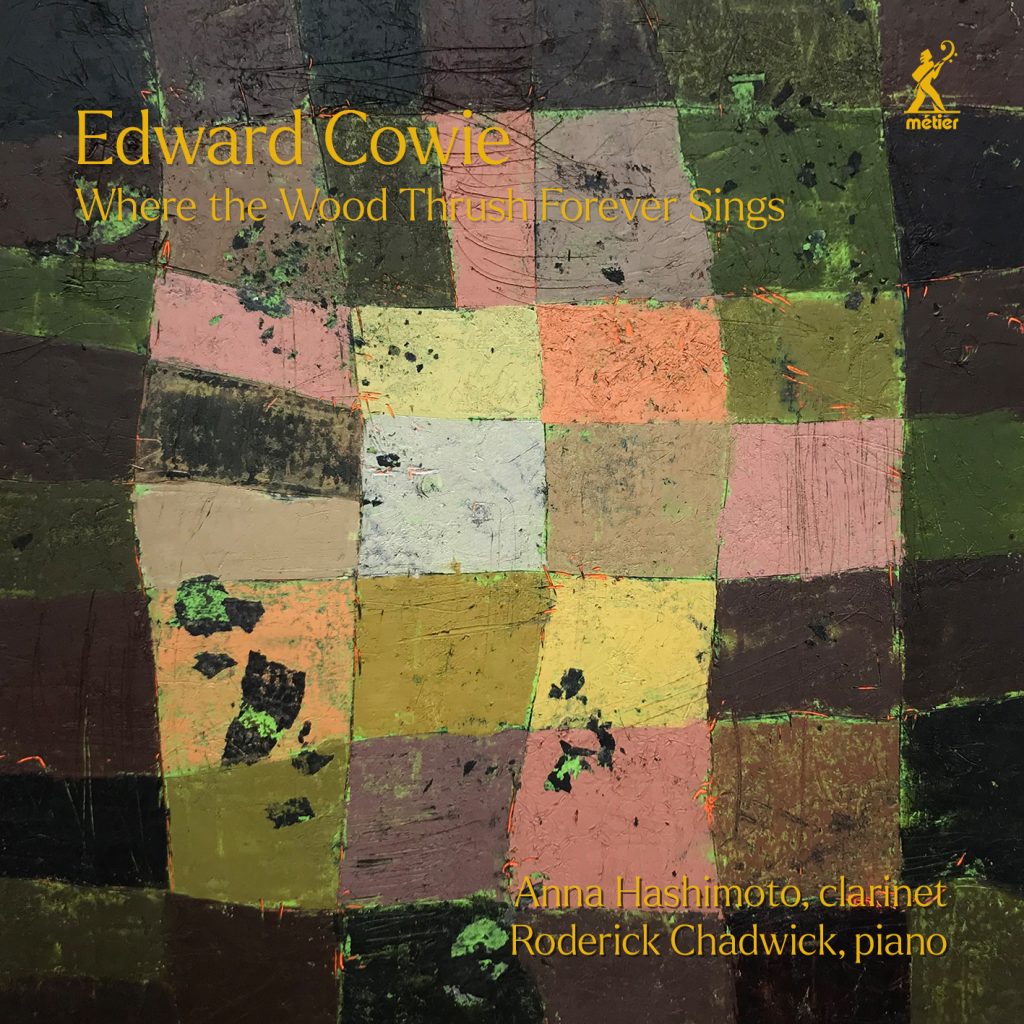
Edward Cowie: Where the Wood Thrush Forever Sings. Anna Hashimoto, clarinet; Roderick Chadwick, piano. Métier, MEX 77104.

Vignettes. Salon Trio: Robert DiLutis, clarinet; Noah Getz, saxophone; Ying-Shan Su, piano. RM Records, RM010.
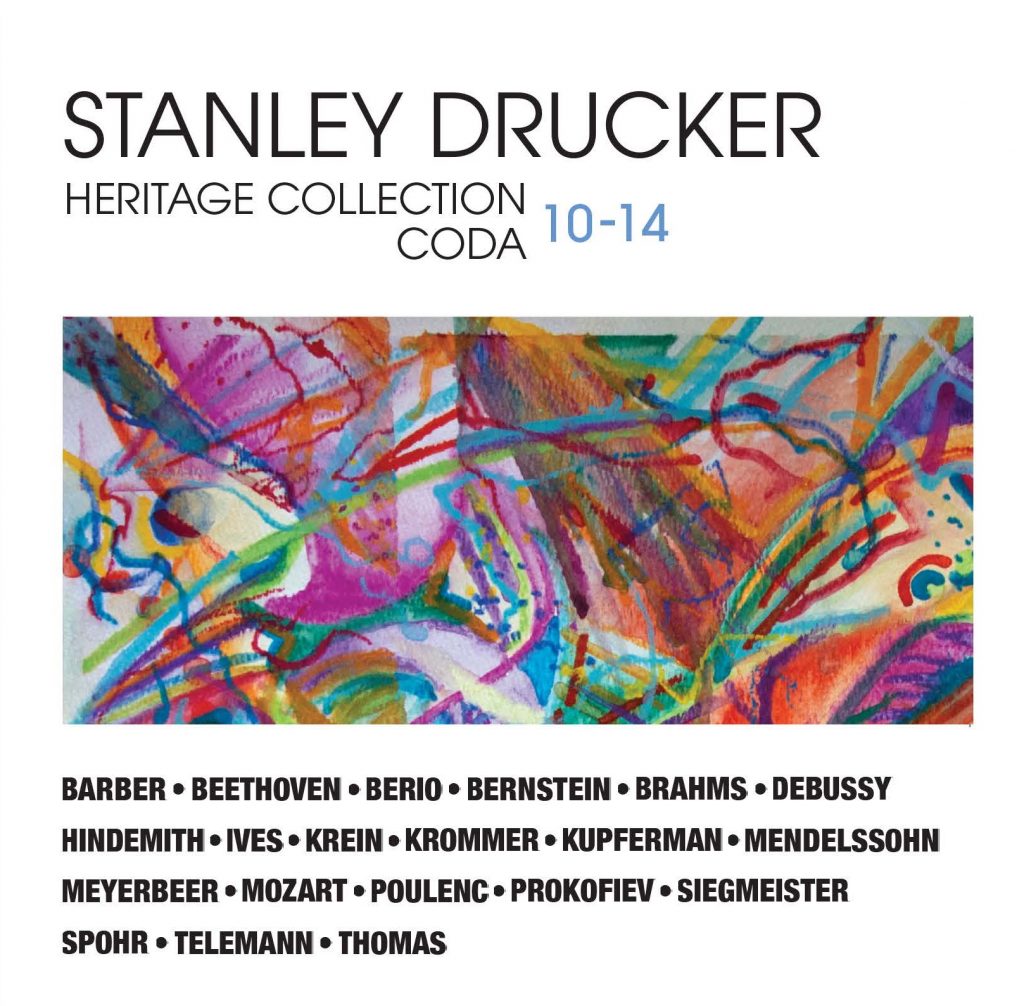
Heritage Collection: Coda 10-14. Stanley Drucker, clarinet. Clover Field Recordings.

Raised Structures. Anthony Taylor, clarinet and bass clarinet. Albany Records, TROY1946.

Six Seasons. Angelique Poteat, composer and clarinet. Navona Records, NV6595.
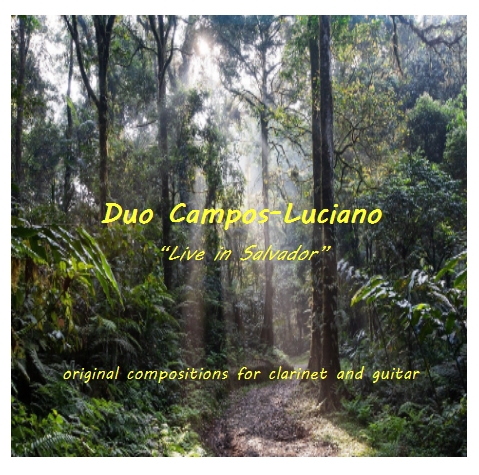
Live in Salvador. Duo Campos-Luciano: José Henrique de Campos, guitar; Luca Luciano, clarinet. Digital Release.
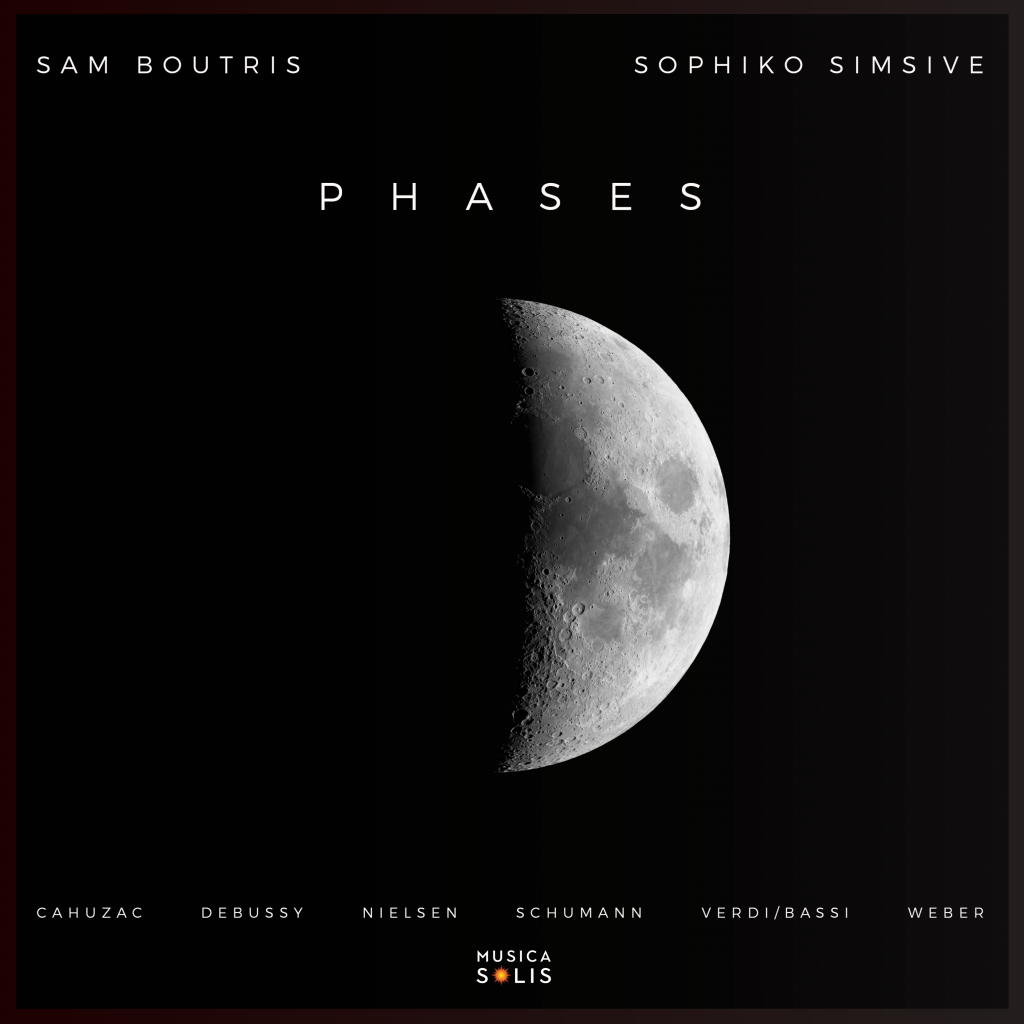
Phases. Sam Boutris, clarinet; Sophiko Simsive, piano. Musica Solis, MS202401.
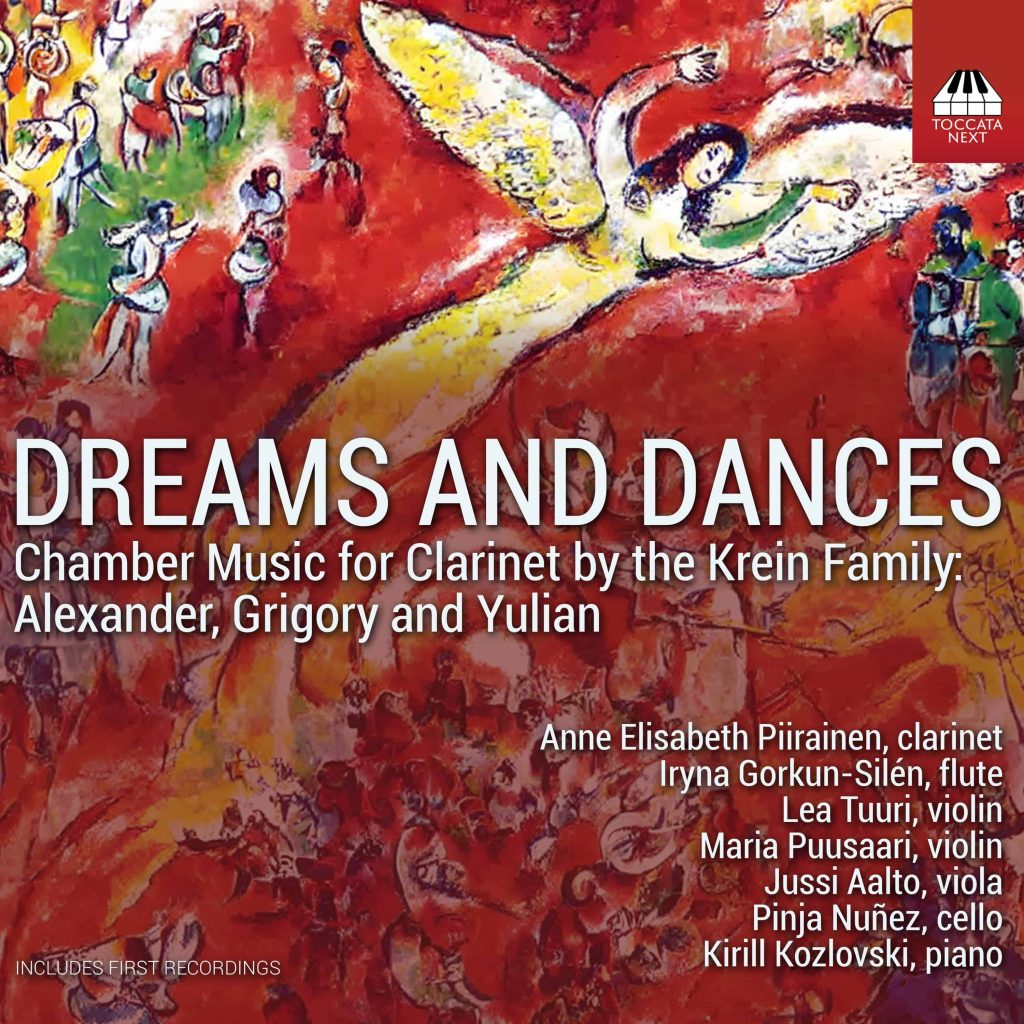
Dreams and Dances. Anne Elisabeth Piirainen, clarinet; Iryna Gorkun-Silén, flute; Lea Tuuri, violin; Maria Puusaari, violin; Jussi Aalto, viola; Pinja Nuñez, cello; Kirill Kozlovski, piano. Toccata Next, TOCN0019.
Comments are closed.